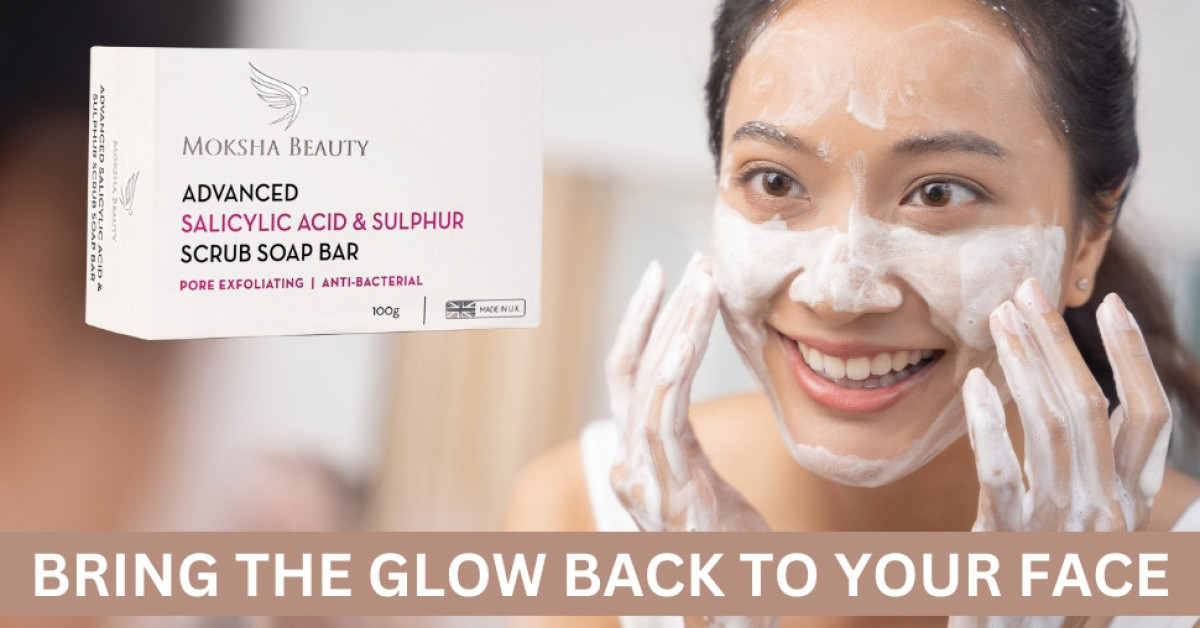London, UK – 17-Feb-2025 – Acne is a common skin condition that affects millions of people of all ages. While there are numerous treatments available, sulphur soap has emerged as a popular and effective option, particularly for those seeking a more natural approach. This press release explores the benefits and usage of sulphur soap in managing acne.
Sulphur soap contains sulphur, a naturally occurring element, which has been used for centuries to treat various skin conditions. Its effectiveness in combating acne stems from several key properties:
Keratolytic Action: Sulphur helps to shed the dead skin cells that can clog pores and contribute to acne breakouts. This gentle exfoliation helps to keep pores clear and prevent the formation of new pimples.
Sebum Regulation: Excess sebum (oil) production is a major factor in acne development. Sulphur helps to control sebum production, reducing the oiliness of the skin and minimising the likelihood of clogged pores.
Antibacterial Properties: Sulphur possesses mild antibacterial properties that can help to reduce the bacteria that contribute to acne inflammation. This can be particularly beneficial for inflammatory acne, characterised by red, swollen pimples.
Anti-inflammatory Effects: Sulphur can also help to reduce inflammation associated with acne, soothing irritated skin and promoting healing.
"Sulphur soap offers a multi-pronged approach to tackling acne," says Lisa Smith, a dermatologist at Moksha Bodycare. "Its ability to exfoliate, regulate sebum, and combat bacteria makes it a valuable tool in managing this common skin condition. It's often a good option for those who find other treatments irritating or who prefer a more natural approach."
The sulphur soap for acne treatment is available for next day delivery for Amazon P rime customer here - https://www.amazon.co.uk/dp/B08KDK43N1
How to Use Sulphur Soap for Acne:
Cleanse: Wash your face with warm water to open pores.
Lather: Lather the sulphur soap in your hands and apply the lather to the affected areas.
Leave On: Allow the lather to remain on the skin for a short period, typically 30 seconds to a minute, before rinsing thoroughly with warm water. Start with a shorter contact time and gradually increase as tolerated.
Moisturise: Follow with a light, non-comedogenic (non-pore-clogging) moisturiser to prevent dryness.
It's important to note that sulphur soap can be drying, so it's crucial to start with once or twice daily use and adjust frequency based on your skin's tolerance. If you experience excessive dryness or irritation, reduce the frequency of use or discontinue use altogether. It is also advisable to consult with a dermatologist before using sulphur soap, especially if you have sensitive skin or are using other acne medications.
Benefits Beyond Acne:
While primarily used for acne, sulphur soap can also be beneficial for other skin conditions, such as:
Rosacea: The anti-inflammatory properties of sulphur can help to reduce redness and inflammation associated with rosacea.
Seborrheic Dermatitis: Sulphur's ability to control sebum production can be helpful in managing seborrheic dermatitis, a condition that causes oily, flaky skin.
Fungal Infections: Sulphur has mild antifungal properties that may be beneficial in treating certain fungal skin infections.
Sulphur soap offers a cost-effective and readily available option for managing acne and other skin conditions. Its multi-faceted approach addresses several contributing factors to acne development, making it a valuable addition to any skincare routine.
To learn more about the acne treatment soap visit - https://www.amazon.co.uk/dp/B08KDK43N1
Sulphur Soap: A Powerful Ally in the Fight Against Acne
By Lisa Smith | 17th February, 2025
